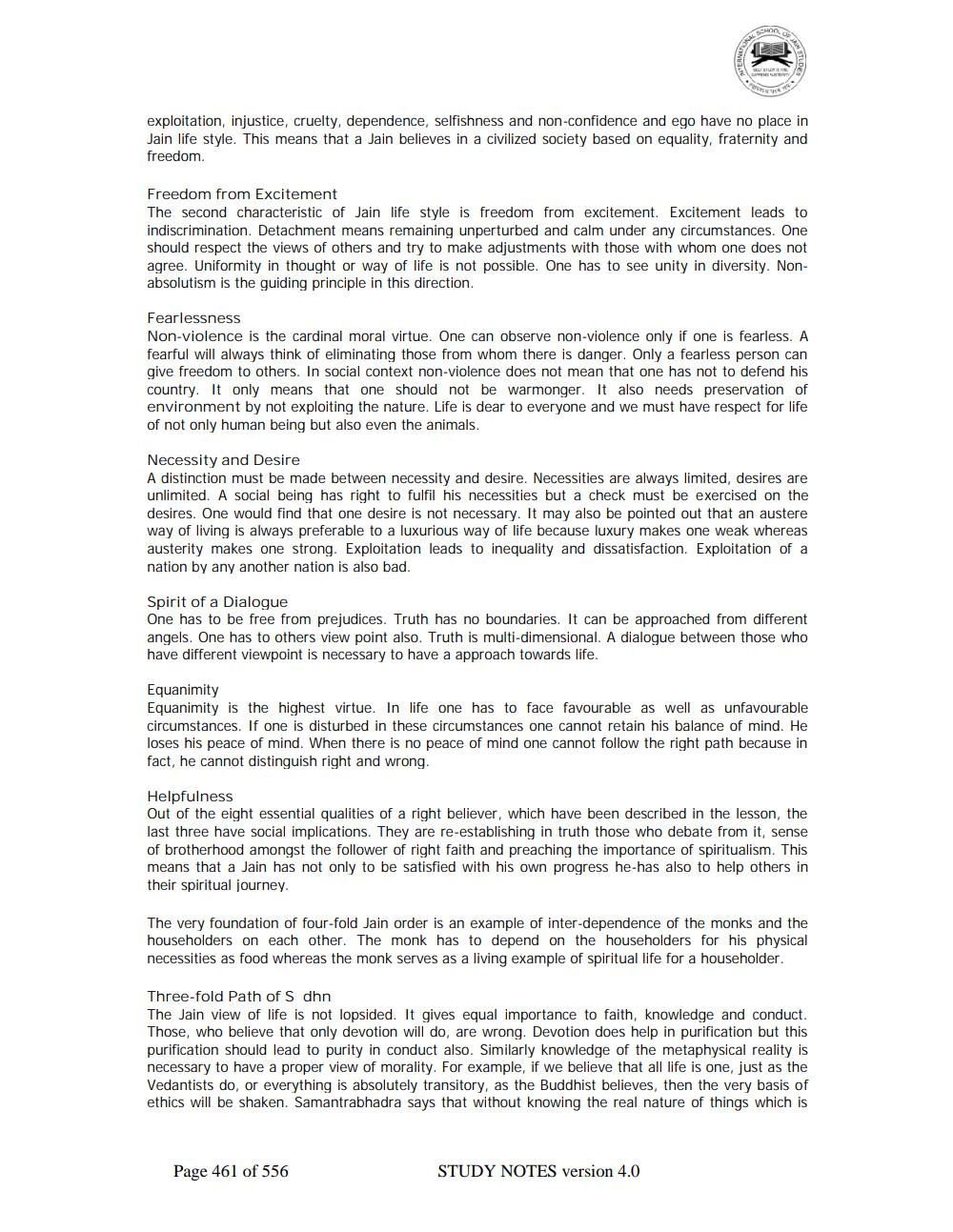________________
exploitation, injustice, cruelty, dependence, selfishness and non-confidence and ego have no place in Jain life style. This means that a Jain believes in a civilized society based on equality, fraternity and freedom.
प्र
Freedom from Excitement
The second characteristic of Jain life style is freedom from excitement. Excitement leads to indiscrimination. Detachment means remaining unperturbed and calm under any circumstances. One should respect the views of others and try to make adjustments with those with whom one does not agree. Uniformity in thought or way of life is not possible. One has to see unity in diversity. Nonabsolutism is the guiding principle in this direction.
Fearlessness
Non-violence is the cardinal moral virtue. One can observe non-violence only if one is fearless. A fearful will always think of eliminating those from whom there is danger. Only a fearless person can give freedom to others. In social context non-violence does not mean that one has not to defend his country. It only means that one should not be warmonger. It also needs preservation of environment by not exploiting the nature. Life is dear to everyone and we must have respect for life of not only human being but also even the animals.
Necessity and Desire
A distinction must be made between necessity and desire. Necessities are always limited, desires are unlimited. A social being has right to fulfil his necessities but a check must be exercised on the desires. One would find that one desire is not necessary. It may also be pointed out that an austere way of living is always preferable to a luxurious way of life because luxury makes one weak whereas austerity makes one strong. Exploitation leads to inequality and dissatisfaction. Exploitation of a nation by any another nation is also bad.
Spirit of a Dialogue
One has to be free from prejudices. Truth has no boundaries. It can be approached from different angels. One has to others view point also. Truth is multi-dimensional. A dialogue between those who have different viewpoint is necessary to have a approach towards life.
Equanimity
Equanimity is the highest virtue. In life one has to face favourable as well as unfavourable circumstances. If one is disturbed in these circumstances one cannot retain his balance of mind. He loses his peace of mind. When there is no peace of mind one cannot follow the right path because in fact, he cannot distinguish right and wrong.
Helpfulness
Out of the eight essential qualities of a right believer, which have been described in the lesson, the last three have social implications. They are re-establishing in truth those who debate from it, sense of brotherhood amongst the follower of right faith and preaching the importance of spiritualism. This means that a Jain has not only to be satisfied with his own progress he-has also to help others in their spiritual journey.
The very foundation of four-fold Jain order is an example of inter-dependence of the monks and the householders on each other. The monk has to depend on the householders for his physical necessities as food whereas the monk serves as a living example of spiritual life for a householder.
Three-fold Path of S dhn
The Jain view of life is not lopsided. It gives equal importance to faith, knowledge and conduct. Those, who believe that only devotion will do, are wrong. Devotion does help in purification but this purification should lead to purity in conduct also. Similarly knowledge of the metaphysical reality is necessary to have a proper view of morality. For example, if we believe that all life is one, just as the Vedantists do, or everything is absolutely transitory, as the Buddhist believes, then the very basis of ethics will be shaken. Samantrabhadra says that without knowing the real nature of things which is
Page 461 of 556
STUDY NOTES version 4.0




